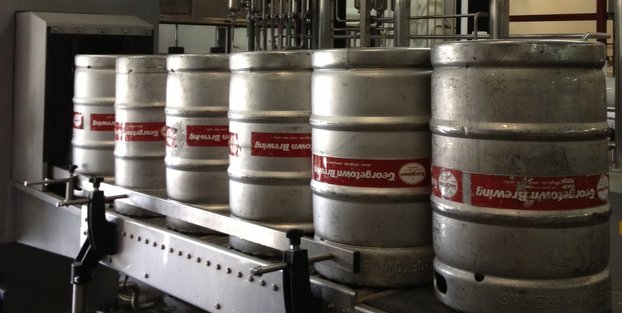
One of the biggest challenges facing a new brewery is how to get the funds necessary to get the business off the ground. As a manufacturing business, breweries tend to be quite cash-hungry. Unlike the tech sector, which might be able to get away with a smart guy, a computer and a solid marketing plan, a traditional startup brewery (one operating through a manufacturing location) will need to come up with funds for building out a location, buying brewing equipment and supplies, licensing costs, possibly labor if the brewery is starting large enough and enough money to fund rent payments for at least six months.
The brewery will be required to get a lease and start paying rent as well as security deposits on the space even before applying for an alcohol license. Since the Alcohol and Tobacco Tax and Trade Bureau (TTB) license process is currently taking up to six months, the wise startup should be ready to fund six months of rent, plus build-out expenses, before they can even start brewing, let alone before any revenue can start coming into the business.
Common sources of funding
There are basically four ways (and various combinations) to fund the brewery in the beginning:
- Personal funds, including savings, retirement accounts and personal credit cards.
- Funds from family and friends, in either loan or equity form.
- Bank loans (these are difficult to get, even when looking at small business loans (SBA) and the owners will often have to sign a personal guarantee, which cuts some of the liability protection you get from having a company).
- Investment funding.
In general, our rule of thumb is that a brewery is not going to be making money for the first five years of business. If you or your partners will be contributing cash, you should have a conversation with your family and co-founders to determine how the first lean years will be handled and whether your family can survive without recouping those savings for that long.
Retirement funds can be tricky to take from. If you are under the age bracket for your fund (usually in the 55 to 65 range), pulling money out will incur a fee and may be considered taxable income for the year you pull it out of that account. Currently there is at least one program that allows use of 401(k) money to start up a business, but considering that the IRS named it “ROBS” (Rollover as Business Startup), this should make you think twice about the safety of using your retirement to start a venture. Before using your retirement, you should have a long conversation with your accountant and financial planner to determine whether this is the correct move for you.
RELATED: Crowdfunding craft beer: Viable business strategy or market fad?
If the company decides it will be taking on credit, remember that creditors will be paid out first if the business fails. In addition, if the company brings on friends and family as lenders, later banks may refuse to give the business a loan unless the original creditors are either paid out or agree to get in line behind the bank should the business fails. If the friends and family loans are very high, the bank may simply turn down a credit application altogether.
Investment funding is discussed somewhat below, but remember that selling off bits of your company is a highly regulated endeavor, and if done incorrectly can cause tax issues and personal liability for the founders. Always ask an attorney before promising your rich uncle a piece of the company in return for his money.





Leave a Reply
You must be logged in to post a comment.